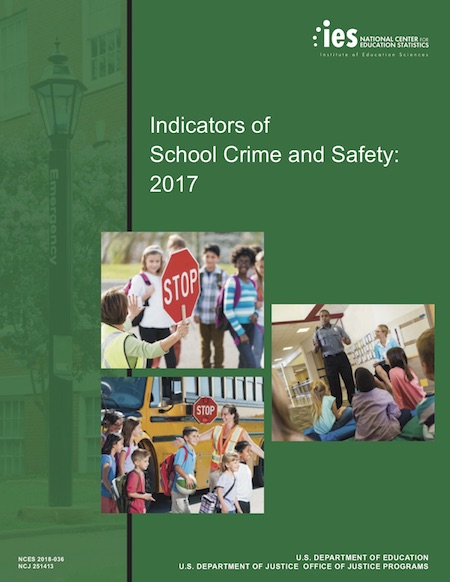 A new report from the U.S. Department of Education and the Bureau of Justice Statistics offers a detailed look at crime on K-12 and college campuses. Among the statistics is information on hate crimes.
A new report from the U.S. Department of Education and the Bureau of Justice Statistics offers a detailed look at crime on K-12 and college campuses. Among the statistics is information on hate crimes.
In 2015, there were 860 hate crimes on college and university campuses that were reported to the police or campus security agencies. (The number of reported hate crimes is undoubtedly far less than the actual number of incidents.)
The most common type of hate crime reported by institutions was destruction, damage, and vandalism (363 incidents), followed by intimidation (357 incidents), and simple assault (79 incidents). Four out of five of the total reported on-campus hate crimes in 2015 were motivated by race, religion, or sexual orientation. Race was the reported motivating bias in 39 percent of hate crimes (339 incidents). Race was the most frequent category of motivating bias associated with all three types of hate crimes, accounting for 42 percent of reported vandalisms classified as hate crimes, 40 percent of reported intimidations, and 49 percent of reported simple assaults.
The full report, Indicators of School Crime and Safety, may be downloaded by clicking here.











